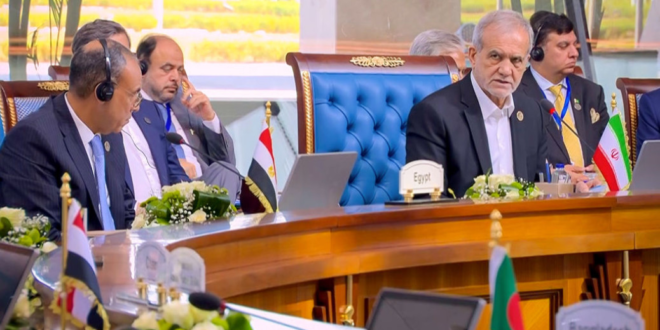Despite longstanding ideological and political differences, Tehran is working to rebuild ties with Egypt and Bahrain, hoping to ease regional tensions.
Recent remarks by Iranian Foreign Minister Abbas Araghchi about restoring relations with Bahrain and Egypt have once again drawn attention to Iran’s strained diplomacy in the region.
The comments come as tensions with Israel reach new heights and Iran seeks to ease economic and political pressure through talks with the US.
Egypt and Bahrain once maintained close ties with Iran, but for different reasons, both relationships deteriorated over time. Tehran now sees improved regional ties, especially after restoring relations with Saudi Arabia, as a potential lever in negotiations with global powers.
Facing increased isolation and waning influence in Iraq, Lebanon, and Syria, Tehran is trying to rebuild regional alliances. But obstacles remain, particularly on the Palestinian cause. While Iran refuses to recognise what it calls the “Zionist regime,” Bahrain and Egypt have both normalised ties with Israel.
Foreign Minister Araghchi acknowledged the complexity of restoring these relationships, saying: “There is still some work to be done to officially establish relations. More trust-building is needed, and the field and regional conditions must also be ready.”
Iran and Bahrain: complicated past
Attempts to restore relations with Bahrain are not new. Last year, reports surfaced of secret meetings between officials from both countries, hosted by Russia. But key differences remained.
Tensions between Iran and Bahrain go back in history. Bahrain was once part of Iranian territory. On 12 November 1957, during the reign of the last king of Iran, the Shah, the Iranian parliament recognised Bahrain as Iran’s fourteenth province and left a seat vacant for it. That happened when Bahrain was a British protectorate.
The situation changed after Britain’s military withdrawal from the Gulf. Under British and American pressure, the Shah accepted a referendum, which showed Bahrainis favoured independence.
The Shah’s decision was controversial. In his memoirs, Prime Minister Asadollah Alam recalled a private conversation where the Shah asked, “Do you think we are betraying our country by resolving the Bahrain issue?” Alam replied, “To say that Bahrain is ours by legal rights will not get us anywhere. If we take it by force, it will always be a burden on our shoulders… and Bahrain’s oil is also drying up.”
After the 1979 revolution, Iran no longer claimed Bahrain, but its support for opposition groups caused tensions. Manama has repeatedly accused Tehran of backing unrest, including the formation of “Bahrain Hezbollah”.
Political ties worsened after the 2011 Arab Spring, when Iran backed Bahrain’s Shia protesters. Manama blamed Tehran for meddling and supporting militant groups like the Al-Ashtar Brigades.
The breaking point came in 2016 after the execution of Saudi Shia cleric Nimr al-Nimr. In response, hardliners in Tehran stormed the Saudi embassy. Riyadh severed ties, and Bahrain followed suit. Despite Tehran and Riyadh restoring relations in 2023, ties with Bahrain remain frozen.
Still, Iran is trying. Araghchi stressed, “The Bahrain case and the Saudi case are very close… we also had requests to establish relations with Bahrain.”
While Bahrain may not hold the same strategic weight for Iran as Saudi Arabia, Tehran views improved ties with Manama as part of a broader push to ease regional tensions and end its diplomatic isolation. In April, President Massoud Pezeshkian told Bahrain’s ruler on a phone call, “We are eager to develop relations further… and will not spare any action to facilitate this.”
Iran and Egypt: lingering doubts
In recent weeks, Iran’s top diplomat also signalled progress with Egypt. “Our relations with Egypt are now much broader than before,” Araghchi said. “Our presidents have met several times. Our foreign ministers have met perhaps 10 times, and we have regular phone calls.”
The path to this point has been long. Before the 1979 revolution, relations between Tehran and Cairo were close. The Shah of Iran married Egyptian Princess Fawzia in an attempt to strengthen ties with the North African country.
Though the marriage did not last, political ties deepened. Years later, when the Shah fled Iran, Egypt was the only country that welcomed him. He died and was buried in Cairo, and his funeral was held at the Abdeen Palace, where he had once married Fawzia.
But in 1979, Ayatollah Khomeini severed ties over Egypt’s peace deal with Israel and its sheltering of the Shah. His followers later attacked Egypt’s embassy in Tehran. Since then, efforts to reestablish relations have made little progress.
In 2012, then-President Mohamed Morsi visited Tehran and referred to Iran as a “brotherly country.” Then-President Mahmoud Ahmadinejad reciprocated by visiting Cairo. But the warming ended when Morsi supported Syria’s opposition. After his ouster and the rise of Abdel Fattah el-Sisi, ties reverted to a cold stand-off.
Iran initially opposed Sisi’s rule, but later softened its stance, highlighting shared history and culture. In May, Iran’s top envoy in Cairo, Mohammad Hossein Soltanifar, said “80 percent of the two countries’ differences had been resolved,” adding, “Only a few limited issues remained.”
Still, one major point remains: Israel.
Iran refuses to recognise the state, while Egypt has had formal ties with Tel Aviv since 1979.
Yet, analysts see mutual interest in de-escalation. Hussein Ebrahimnia, an Iranian expert on West Asia, said, “Security challenges from North Africa to the Gulf are pushing the two sides to cooperate. The economic component will have the greatest long-term impact.”
However, internal politics in Iran may hinder progress. Mohammad Ali Sobhani, a former diplomat who worked on Iran-Egypt talks in 2004, warned of hardliners opposed to any reconciliation.
“There are many possibilities for a win-win relationship,” he said. “But extremists focus on differences, and they have the power to sabotage diplomacy.”
 Eurasia Press & News
Eurasia Press & News



